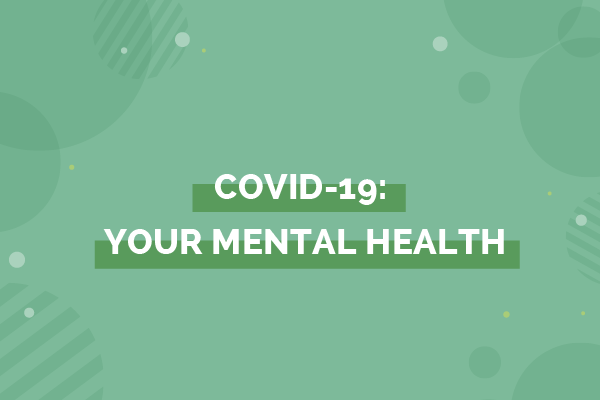
COVID-19: Your mental health
↵
Ever since the COVID-19 pandemic has taken over the world and imposed a new reality, countries have introduced measures to restrict movement, in a bid to reduce the number of infections and deaths. Such radical measures have forced everyone to make considerable changes to their daily routines, potentially disrupting every plan made for the foreseeable future.
The new routine of wearing masks at all time outside your home, avoiding physical contact with family members and friends, working from home, home-schooling children, putting your social life on hold, and potentially facing unemployment, has taken a huge toll on people’s mental health. Adapting to such lifestyle changes, facing the fear of catching COVID, worrying about vulnerable people around us, and living under quarantine and lockdowns for an extended period of time, are challenges everyone has had to face.
Fortunately, there are many ways to look after one’s mental health and to support others who may need extra care:
- Follow the safety measures enforced by local authorities and keep up-to-date with the latest COVID-related news from WHO and official news sources.
- Adopt a daily routine, including getting up and going to bed at the same time every day. It will help you to stay centered and more or less disciplined.
- Keep up with good personal hygiene practices.
- Exercise as much as possible.
- Make healthy food choices and try to have your meals at the same time every day.
- Limit your alcohol consumption, if any at all. Using alcohol and drugs as a way to cope with anxiety, boredom, fear, and social isolation is harmful and counter-productive.
- Try to limit your working hours to what they were before you started working from home.
- Allocate time for the things you enjoy.
- Try to avoid focusing on news that make you feel anxious or distressed. Watch/read the latest info once or twice a day, if needed.
- If your freedom of movement is restricted due to the pandemic, stay in touch with people close to you by phone, video chat and social media channels.
- Take regular breaks from screen time, including video games.
- Share positive stories as much as possible on your social media accounts. Correct “fake news” and misinformation when needed.
- If possible and when needed, offer help to vulnerable people in your community, such as assisting them with food shopping.
- Fear is normal in such uncertain times, but remember not to take it out on others. Don’t discriminate against and blame people who might have caught the virus. Be kind to health workers, they deserve our gratitude and respect.




